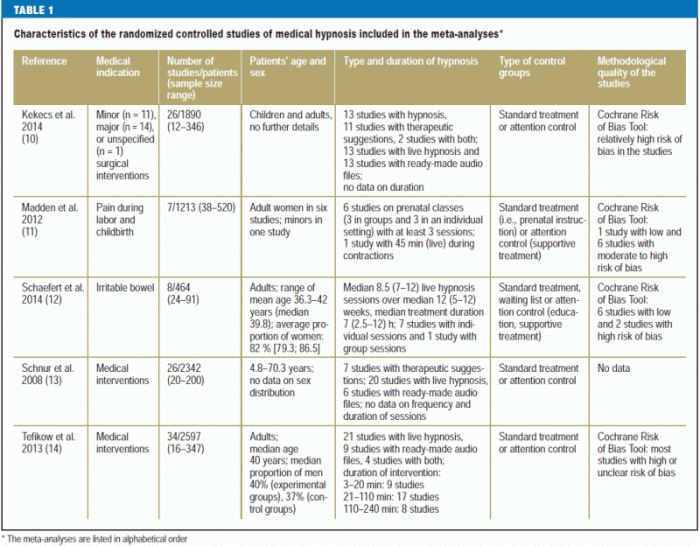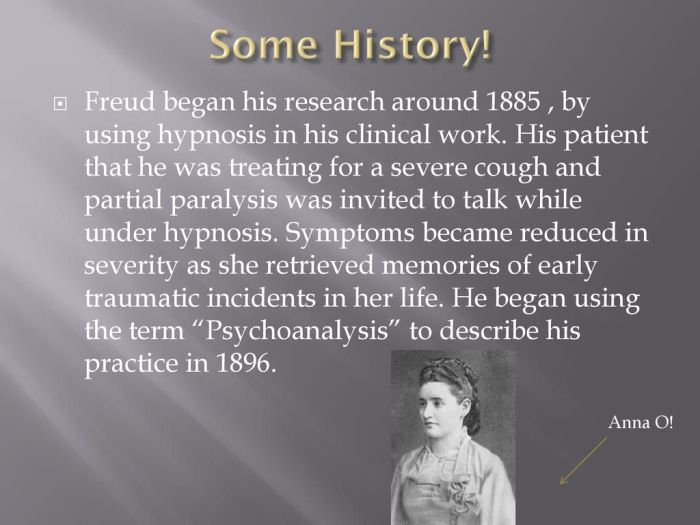Research indicates that memories retrieved during hypnosis are, providing unique insights into the complexities of the human mind. This in-depth exploration delves into the accuracy and reliability of these memories, examining the factors that influence their retrieval and the implications for various fields.
Hypnosis, a state of focused attention and heightened suggestibility, has been used to access memories that may be difficult to recall consciously. However, the validity of these memories has been a subject of debate, with research aiming to shed light on their nature and reliability.
Introduction

Hypnosis, a state of focused attention and heightened suggestibility, has been used for centuries to retrieve memories. Research on memories retrieved during hypnosis has sparked debate about their accuracy and reliability.
Methods and Procedures
Studies on hypnotic memory retrieval typically involve inducing hypnosis in participants and then using various techniques to retrieve memories, such as guided imagery, free recall, and question-and-answer sessions. Control groups or comparison conditions are often included to compare the accuracy of memories retrieved under hypnosis to those retrieved in other conditions.
Findings and Evidence

Research findings on the accuracy of hypnotic memory retrieval have been mixed. Some studies have shown that memories retrieved under hypnosis can be accurate and reliable, while others have raised concerns about the potential for false memories or distortions.
- A study by Lynn et al. (2000) found that hypnosis did not increase the accuracy of memory recall, suggesting that memories retrieved under hypnosis are not necessarily more reliable than those retrieved in non-hypnotic states.
- However, a study by Kihlstrom et al. (1997) showed that hypnosis could enhance memory recall in some cases, particularly for forgotten details.
Theoretical Explanations: Research Indicates That Memories Retrieved During Hypnosis Are

Several theories have been proposed to explain the phenomena observed in hypnotic memory retrieval.
Suggestion Theory
This theory suggests that memories retrieved under hypnosis are influenced by suggestions from the hypnotist or other external cues. Hypnosis may make individuals more susceptible to suggestions, leading to the creation of false memories or the distortion of real memories.
Imagination Theory
This theory proposes that memories retrieved under hypnosis are not actual memories but rather products of the imagination. Hypnosis may create a state of heightened suggestibility and imagination, allowing individuals to create vivid and detailed memories that may not be based on actual events.
Dissociation Theory
This theory suggests that hypnosis creates a state of dissociation, in which individuals experience a separation between their conscious awareness and their memory systems. This dissociation may allow for the retrieval of memories that are normally inaccessible in non-hypnotic states.
Applications and Implications

Research on hypnotic memory retrieval has potential applications in various fields.
Legal Proceedings
Hypnosis has been used in legal proceedings to recover lost memories or enhance the accuracy of witness testimony. However, concerns about the reliability of hypnotic memory retrieval have raised questions about its admissibility as evidence in court.
Therapy, Research indicates that memories retrieved during hypnosis are
Hypnosis has also been used in therapy to help individuals recover traumatic memories or address psychological issues. Hypnotic memory retrieval can provide valuable insights into a person’s past experiences and may facilitate healing and recovery.
Quick FAQs
Are memories retrieved during hypnosis accurate?
Research findings vary, with some studies suggesting that memories retrieved during hypnosis can be accurate, while others indicate a potential for distortion and fabrication.
What factors influence the accuracy of hypnotic memory retrieval?
Factors such as the skill of the hypnotist, the suggestibility of the subject, and the context in which the hypnosis is conducted can influence the accuracy of the memories retrieved.
What are the ethical considerations in using hypnosis for memory retrieval?
Ethical considerations include the potential for false memories to be created or implanted, the need for informed consent, and the importance of using qualified and experienced professionals.
